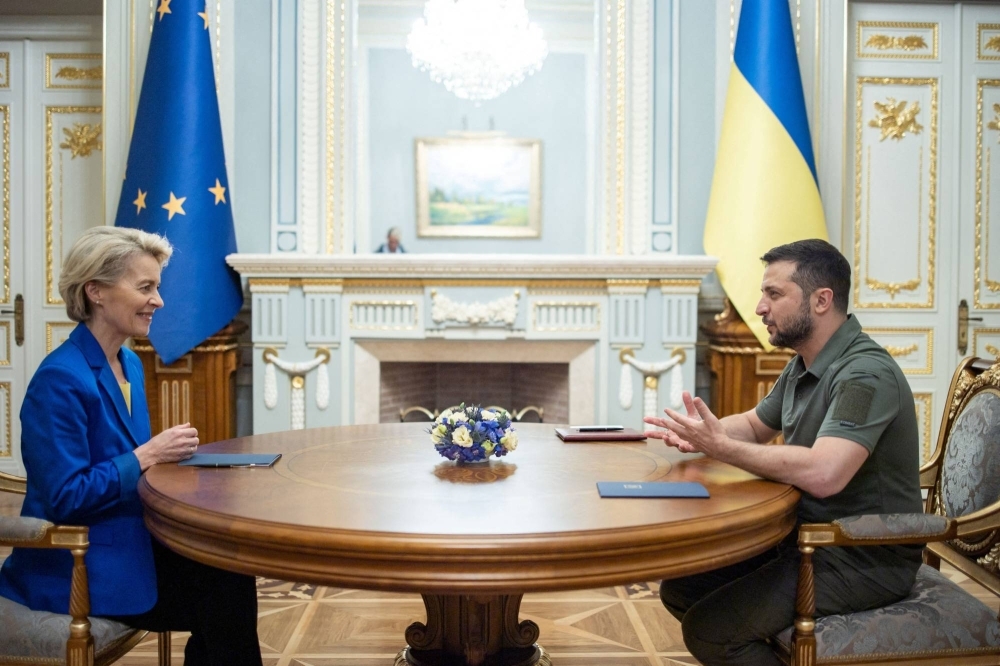It took European Union leaders eight hours — a relatively short time, by EU standards — to agree to start accession negotiations with Ukraine.
While the decision last month represents a major victory for Ukrainian President Volodymyr Zelenskyy, it came at a high cost, as Hungarian Prime Minister Viktor Orban at the time blocked the disbursement of €50 billion ($55 billion) in aid that Ukraine desperately needs to defend itself. As the war approaches its second anniversary, Europe finds itself in a double bind.
The EU’s Ukraine strategy rests on three main pillars. First, European leaders have committed to a definition of victory that implies the restoration of Ukraine’s territorial integrity and have pledged to support Ukraine until it reclaims all territory occupied by Russia during the war’s early stages.



